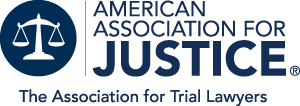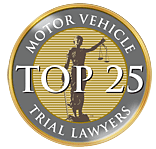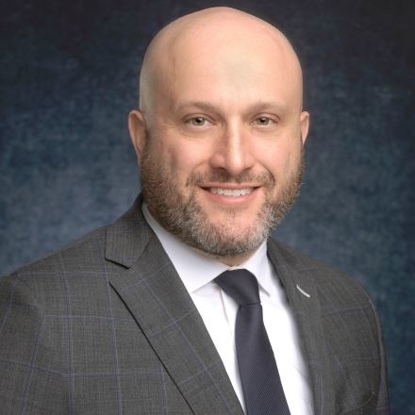
Virginia Products Liability Attorneys
Let Kalfus & Nachman PC Help You After a Defective Product Injury!
Product liability law is designed to protect consumers from defective or unreasonably dangerous products that cause personal injury or wrongful death. When a product sickens or fatally injures a person, the manufacturer can and should be held responsible for the victim's losses.
If you have been seriously injured by a defective product or dangerous drug, call Kalfus & Nachman PC today at (855) 880-8163 to schedule a consultation with our experienced Virginia product liability attorneys.
When Is a Product Considered Defective?
While some products, such as power tools, have inherent dangers, that does not necessarily mean they are defective. A product is considered defective when it poses an unreasonable risk to those who use it as intended and without modifications, either due to a faulty design, manufacturing error, or mistake in labeling. Generally speaking, nearly all defective products fall under at least one of these three categories.
Below are examples of the three ways in which a product can be defective:
- Defective Design: A product has a defective design if it is inherently unreasonably unsafe for consumer use. An example of defective design is a type of sport utility vehicle (SUV) that rolls over easily, putting occupants at severe risk of injury or death in the event of a collision. Another example would be a type of medication meant to prevent heartburn which has the unintentional side effect of causing cancer; in this case, the risks far outweigh the benefits.
- Defective Manufacturing: Manufacturing defects arise from mistakes that occur during the actual creation/production of the product. For example, if a pharmaceutical medication becomes contaminated when miniscule pieces of metal enter the medication prior to it being sealed, this is a manufacturing defect. Similarly, a seatbelt that is manufactured without a critical component that allows it to “lock” on impact could have a manufacturing defect.
- Labeling Defect: Sometimes referred to as “marketing defects,” labeling defects involve improper labeling—including improper or missing warning labels and/or safety instructions. For example, if a children’s toy doesn’t contain a choking hazard warning, despite the fact that it contains small parts, this is a labeling defect. Similarly, an over-the-counter medication that doesn’t list dosage instructions and/or all possible side effects also has a labeling defect.
Any type of defect—whether it’s a faulty design, manufacturing error, or missing labels—can have potentially severe or even fatal consequences. And product designers, manufacturers, and distributors can be held legally liable.
Types of Defective Products
Virtually any kind of product can be defective and pose a risk - whether it's a part of your car that didn't work as it should have, a child's toy that causes injury, or a prescription drug that results in major side effects.
Some of the most common defective product injuries occur due to:
- Defective vehicles (including airbag and seatbelt failure)
- Stryker hip replacement products
- Faulty machinery and equipment
- Flawed medical appliances
- Defective life jackets
- Defective consumer and household products
- Products causing explosions and burns
- Transvaginal mesh
- Talcum powder
- Products causing explosions and burns
Defects usually occur during the design process or the manufacturing process, but they may also involve inadequate instructional manuals or faulty safety devices.
Dangerous Drugs
Drugs can involve a wide range of potential side effects and complications. Pharmaceutical companies have a responsibility to carefully test their products and clearly communicate potential conflicts to doctors and patients alike. Unfortunately, some drug manufacturers allow their products to remain on the market even when they are well aware of the dangerous nature of some of the side effects.
At Kalfus & Nachman PC, our Virginia defective product attorneys handle many different types of defective drug cases, including:
- Januvia, Byetta, Janumet, and Victoza
- Contaminated steroid injections
- Testosterone replacement therapy for women and men
- Lipitor
- Plavix
- Actos
- Accutane
- Darvon and Darvocet
- Yaz and Yasmin
Product Defect Investigations
Understanding the cause of the product defect and how it led to your injuries is crucial for building an effective product defect case. When there is more work to be done to uncover the key details of your accident and injuries, we can conduct a thorough investigation.
During the investigation, we might be able to get more information from:
- Defective product: The defective product itself is usually the best source of information about the defect and what happened. Do not send the product back to the manufacturer. Allow our team to investigate, analyze, and test it first. When we have concluded that we have learned all we can from it, we can then discuss whether or not it should be surrendered to the manufacturer and opposing counsel.
- Medical reports: The reports created by your medical provider during the course of your treatment can reveal details of your injuries that clarify the link between them and the defective product. We can work with your medical provider to make the most of their notes, observations, and prognoses.
- Government inspections: Government entities like the Consumer Product Safety Commission (CPSC) and the Food and Drug Administration (FDA) might have already investigated the same type of product that hurt you. Inspection records from such agencies can be incredibly powerful when proving a claimant’s argument as factual and that the defect was not “just a fluke.”
- Internal documents: The manufacturer of the defective product might have internal documents that detail the dangers of the products. Sharing those documents won’t be something they want to do, though. Our attorneys can use investigative techniques and subpoenas to get internal documents that bolster your claim.
Strict Liability or Negligence?
Your product liability claim can be based on:
- Strict liability: Many defective product cases involve strict liability rules that require you only to prove that the product was defective. You do not need to try to prove that the manufacturer was negligent. This rule creates a lower evidential bar for you to surpass compared to a claim based on negligence.
- Negligence: Other product defect cases require you to prove that a manufacturer, distributor, or vendor was negligent at some point and that negligence led to or contributed to the product’s defect that hurt you. Product defective cases based on negligence are typically more difficult to win as a claimant because it involves the additional step of proving that the defendant’s negligence breached a duty of care owed to you, the consumer.
Get Fighting Attorneys On Your Side Today
We represent victims of product liability in Norfolk, Newport News, Roanoke, and nearby areas of Virginia and Northeast NC. "Tell Them You Mean Business!"
If you have suffered serious injury due to a defective product or drug, please contact Kalfus & Nachman PC online today or call (855) 880-8163 to schedule a free case evaluation with our experienced Virginia product liability lawyers.

How Is Kalfus & Nachman Different?
-
You Will Pay No Fees Unless We Win Your Case
-
We Have Recovered Millions of Dollars for Our Clients
-
Our Attorneys Are Well-Equipped to Fight Insurance Companies
-
We Have Successfully Handled Thousands of Cases Since 1979
-
We are a Full-Service Firm with Multiple Locations
-
Se Habla Español

Awards & Accolades

We Mean Business
Read Our Recent Case results
-
$10.9 Million Traumatic Brain Injury
-
$10.5 Million Truck Accident
-
$7 Million Auto Accident
-
$5.147 Million Truck Accident
-
$2.15 Million Premises Liability

Meet Our Team
Tell Them We Mean Business
-
 Paul R. Hernandez Attorney
Paul R. Hernandez Attorney -
 A.J. Kalfus of Counsel
A.J. Kalfus of Counsel -
 Stuart L. Nachman of Counsel
Stuart L. Nachman of Counsel -
 Richard F. Aufenger, III of Counsel
Richard F. Aufenger, III of Counsel -
 Jesse M. Suit III of Counsel
Jesse M. Suit III of Counsel -
 Thomas A. Fitzgerald, II Attorney
Thomas A. Fitzgerald, II Attorney -
 Seth D. Scott Attorney
Seth D. Scott Attorney -
 Christopher I. Jacobs Attorney
Christopher I. Jacobs Attorney -
 Michael J. Levens Attorney
Michael J. Levens Attorney -
 Colin P. O'Dawe Attorney
Colin P. O'Dawe Attorney -
 Neal C. Schulwolf Attorney
Neal C. Schulwolf Attorney -
 Deborah B. Vaughn Attorney
Deborah B. Vaughn Attorney -
 Michael Sternberg Attorney
Michael Sternberg Attorney -
 Olivia T. Donahue Attorney
Olivia T. Donahue Attorney -
 Brian A. Thomasson Attorney
Brian A. Thomasson Attorney -
 Jeffry A. Sachs Attorney
Jeffry A. Sachs Attorney -
 Gregory E. Camden Attorney
Gregory E. Camden Attorney -
 Gregory L. Sandler, Esq. Attorney
Gregory L. Sandler, Esq. Attorney -
 Massimo Morabito Attorney
Massimo Morabito Attorney



































-NT.2502271247084.png)